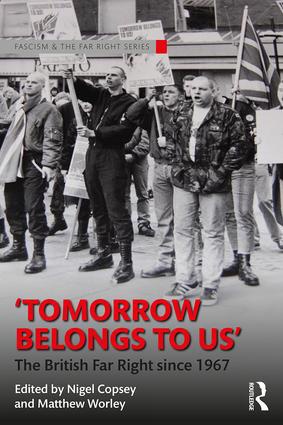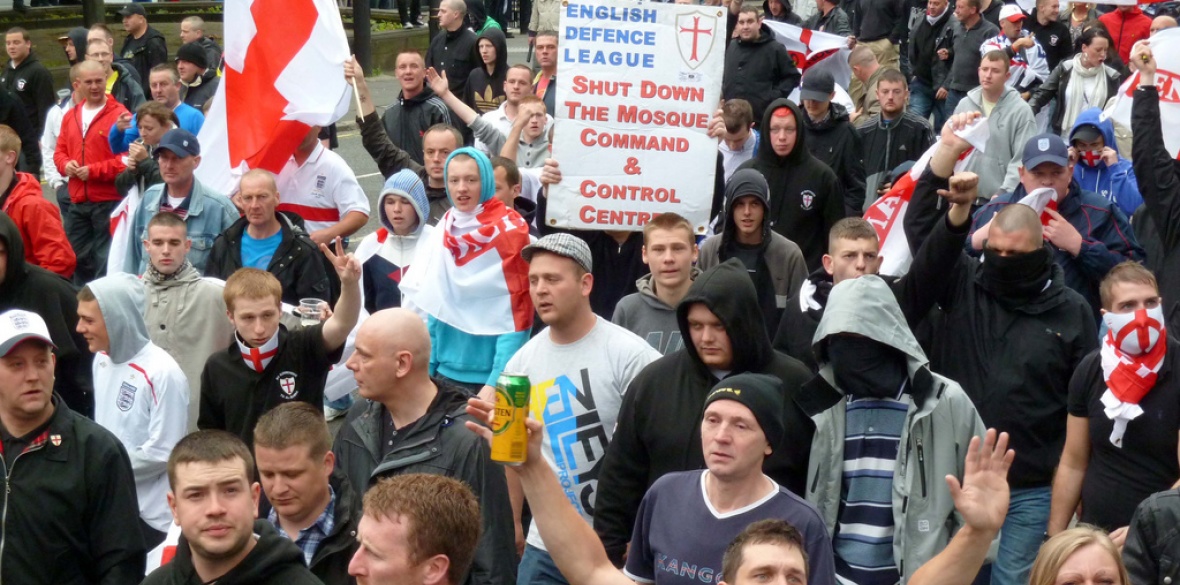This is the last article you can read this month
You can read more article this month
You can read more articles this month
Sorry your limit is up for this month
Reset on:
Please help support the Morning Star by subscribing here
Tomorrow Belongs to Us: The British Far Right Since 1967
Edited by Nigel Copsey and Matthew Worley
(Routledge, £24.99)
AS IF we needed reminding, the interconnections between racism and the rise of the far right have been causing concern across Europe and beyond and this was demonstrated so clearly in the Morning Star’s recent review of Liz Fekete’s excellent book Europe’s Fault Lines: Racism and the Rise of the Far Right.

Tomorrow Belongs to Us focuses more specifically upon the far right in Britain since the formation of the National Front (NF) in 1967, although the collection does include a chapter exploring attempts to export the NF elsewhere, to Australia, New Zealand and South Africa.
There is also a chapter on the links with Greece’s far right Golden Dawn party, including attempts to build support for it in Britain following the murder of two of its activists.
The title of the book comes from a song written by two US Jews for an anti-nazi film — an ironic origin, given that this song was then reworked into a rock anthem as well as providing a slogan for the British National Party in the 1980s.
The references back to nazism were only too relevant, though, as the first chapter demonstrates. It charts the course of Holocaust denial and the British far right from the formation of the NF in 1967 onwards and subsequent chapters pick up further echoes of nazi mythology too in far-right obsessions with myths of Jewish conspiracies, linked to global finance capitalism and international communism. After all, Trotsky was Jewish, which was somehow supposed to lend credence to the argument.
Subsequent chapters explore the varying ways in which the far right has developed as it attempts to manage the tensions between street violence versus the need to appear more respectable in order to appeal to wider audiences and to win votes.
The chapters on homophobia and gender illustrate further tensions too, set against the background of changing attitudes and cultures. There are nuances to be understood here. Even the English Defence League (EDL), generally associated with street violence, needs to be seen in the context of activists’ emotional responses to grievances.
This raises wider questions about the failures of the liberal left in general, and new Labour’s so-called third way more specifically, in its lip service to neoliberal globalisation, privatisation and the politics of austerity.
As Danny Dorling has stated, this was how new Labour and the liberal left media “created the circumstances in which the English Defence League would grow and of how Ukip and the EDL are linked.”
The need for socialist alternatives, as exemplified by Jeremy Corbyn’s leadership of the Labour Party and by the Morning Star could hardly be clearer.
Further understanding of the far right is clearly needed too and Tomorrow Belongs to Us has a very useful final chapter providing a guide to supplementary reading.











